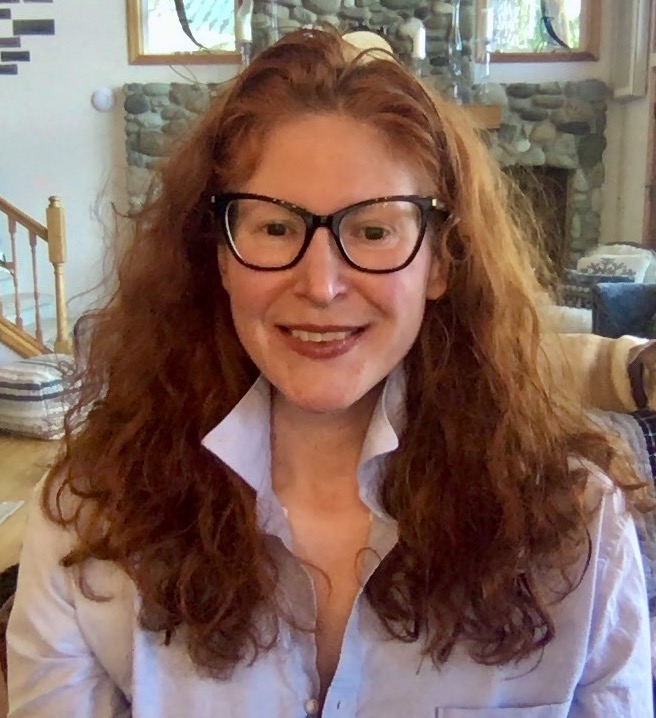 Understanding What It Means When Women with Borderline Personality Disorder (BPD) or Narcissistic Personality Disorder (NPD) Say, “I Feel Unsafe.”
Understanding What It Means When Women with Borderline Personality Disorder (BPD) or Narcissistic Personality Disorder (NPD) Say, “I Feel Unsafe.”
When a woman says, “I feel unsafe,” it’s commonly interpreted to mean that she’s at risk of physical harm from an abusive boyfriend, husband, or ex. This understanding stems from the perception that “unsafe” generally implies a high risk of assault and injury.
However, this interpretation may not apply when the woman making the claim is a narcissist, histrionic, or borderline who is the primary aggressor in the relationship. In these cases, “unsafe” usually doesn’t mean what people outside the relationship assume it means. To clarify, engaging in arguments and responding to provocation with yelling and name-calling, though immature, may not necessarily constitute abuse. In many cases, it is a response to the abuse of the primary aggressor (i.e., reactive abuse). This is what abusive women frequently misrepresent as abuse. That is, when her male partner reacts to her abuse with anger and/or by holding her accountable.
If you’re a man, and your toxic wife, girlfriend or ex tells you — or anyone else — that you’re making her feel “unsafe,” what does it mean?
The Real Danger: False Allegations and Legal Repercussions
In all likelihood, YOU are unsafe. An abusive woman saying, “I feel unsafe” means you are in danger of false abuse allegations, arrest, restraining orders, parental alienation and being prohibited from seeing your kids. Do not ignore, minimize or make excuses to avoid addressing the peril you’re most assuredly facing. Statements like these, or variations thereof, pose a real-world threat to you.
Potential Scenarios When a Borderline Woman Says, “I Feel Unsafe”
Cue the horror film music. No, seriously, cue the soundtrack from Psycho.
When a borderline woman says, “I feel unsafe” (or any of the other Cluster B types), you should be concerned. Very concerned. In addition to being in jeopardy for false abuse allegations, ex parte motions, etc., it’s probable that one or more of the following scenarios are at play:
1. Financial and Custodial Manipulation
Why keep the bull when you can bleed him dry at family court for free?
Once the love bombing or idealization stage ends and devaluation begins, the narcissist’s and borderline’s true natures become apparent. After which mutual disillusionment and resentment set in and take root. This is when you see the empty, angry adult toddler behind the mask of the person you once loved. This realization can unfold over months, years or even decades, and is influenced by factors such as your level denial and bargaining, grief and family of origin issues.
Recognizing her true character also leads to resentment and conflict. In fact, once you finally see her as she truly is, she hates you for it. Well, more than she already hated you, that is. Confronting these women with their abuse, cruelty, selfishness, entitlement, lack of emotional and physical intimacy, infidelity, or simply for being a terrible partner infuriates them. Moreover, she has zero interest in understanding your desires, needs, feelings, or how her actions affect you and the children, which only fuels her anger further.
In these situations, the statement “I feel unsafe” can signal the beginning of a legal strategy to gain custody of the children, a substantial share of marital assets, and your future income in her effort to evade accountability. It can also serve as a means to gather evidence against you. Therefore, when you hear “I feel unsafe,” consider it a performative statement and assume you’re being recorded.
2. Maintaining Control and Dominance.
Narcissists, borderlines and histrionics need to feel in control. They are easily triggered when they perceive a loss of control over their victims. For that matter, they can turn anything into a trigger if they’re jonesing for a drama fix. For instance, emotional detachment (i.e., refusing to engage in circular arguments), setting boundaries, and practicing self-care—all behaviors that healthy partners support, by the way—can provoke them.
As you become less tolerant and more resistant to their high-conflict reindeer games, NPD, BPD, HPD women feel “unsafe.” However, their feelings of discomfort are not genuine fear; she is angry. Thus, the statement “I feel unsafe” is often a power move designed to reassert her dominance. It serves as a warning that any loss of control on her part will be met with severe consequences, potentially involving law enforcement.
3. Couples Therapy as a Manipulation Tool
In some cases, narcissistic, borderline or histrionic women may demand couples therapy as a last resort to maintain control. Many individuals with Cluster B personality disorders avoid counseling like vampires avoid sunlight due to their fear of exposure. They are willing to go to extreme lengths, such as filing false police reports or committing perjury, to avoid accountability and punish their perceived target of blame — that would be you.
When their dominance and control are threatened, an enabling, gender biased or inexperienced couples therapist can be an ally to a narcissistic, borderline, or histrionic woman. Therefore, when they claim “I feel unsafe” during therapy sessions, it is often a calculated performance aimed at manipulating the therapist into affirming them as the victim. This manipulation serves to maintain their power and validate their abuse of you. Additionally, an enabling therapist can inadvertently assist in generating evidence to support their false abuse allegations in court. Exercise caution and consider the potential risks before agreeing to therapy under such circumstances.
4. Smearing, Alienating and Mobbing
Frequently, a toxic partner will begin cultivating her victim narrative long before openly stating “I feel unsafe” to you. Clients are often shocked by how far back the smearing and alienating goes once they finally connect the dots. Don’t be surprised if you discover she’s told her friends, mutual friends and your friends some combination of victim/long suffering martyr story to grease the eventual false abuse allegation skids.
If your family of origin includes narcissists, borderlines and other toxic personalities, she’ll smear you to them, too. Sadly, her lies, projections, distortions, exaggerations and role reversals often find a receptive and participatory audience with these kinds of family members. I have clients whose own parents, siblings, cousins, etc., have joined in the mobbing and alienation. It’s horrible.
If this happens to you, don’t make excuses, rationalize or minimize your family members’ treachery. This is an egregious betrayal. It’s beyond appalling and you must not trust them.
In other words, don’t share anything with them you don’t want getting back to Crazy. For that matter, don’t share anything with “nice” family members who may very well tell toxic family members who’ll then report back to Crazy. Don’t argue with them or call them out. They’ll deny it and blame shift. Additionally, they’ll spin it into more evidence for Crazy that you’re angry, scary and mentally ill.
Abusers do this to isolate you, deprive you of support and undermine your credibility should you choose to tell the truth about them. By the way, seeking support from your own family and friends is natural and healthy. When Crazy seeks support from your support network it’s another abuse tactic.
5. Grooming and Conditioning Abuse
Groomers gonna groom.
The statement “I feel unsafe” can also serve as an abuse conditioning tactic. Abusers typically consolidate control and dominance gradually, much like the metaphor of a frog in a pot of boiling water. They systematically erode your self-regard and self-esteem using a variety of abuse tactics, including projection, gaslighting, splitting, projective identification, and DARVO.
DARVO stands for Deny, Attack, and Reverse Victim and Offender. In my opinion, it is one of the most insidious forms of psychological manipulation. Not only is it a kind of projection, but it also shifts the blame onto the actual victim, effectively victim-blaming.
And by “victim blaming,” I mean genuine victim blaming, not the exaggerated claims sometimes made by certain feminists who continue to portray abusers like Amber Heard as victims. A man’s life can be ruined on social media and offline by mere insinuations and accusations of abuse, without any actual evidence, criminal complaints, or due process. Most men are acutely aware of this vulnerability.
My clients understand how precarious their situation becomes when their partners accuse them of abuse or make ambiguous statements like, “I feel unsafe.” This phrase is vague and open to assumption and misinterpretation, making it a powerful tool for abusive women who are well aware of its implications.
What Makes Narcissists, Borderlines, Histrionics and Other Toxic People Feel “Unsafe”
Essentially, expecting a narcissist or borderline to behave like an accountable, emotionally mature adult who behaves with integrity and takes responsibility for her words and actions makes them feel “unsafe.” In these cases, “unsafe” means angry and not in control. For example:
- Having boundaries is abusive to them.
- Not letting them bait you into pointless circular arguments is abusive to them.
- Not allowing them to scapegoat you (i.e., blaming you for their bad behavior or blame shifting) is abusive to them.
- Not going along with their dishonest victim narratives is abusive to them.
- Practicing self-care is abusive to them.
- Refusing to enable their pathological immaturity, double standards and entitlement is abusive to them.
In other words, if you don’t let them abuse, exploit and control you, you’re being abusive to them. Furthermore, if you treat them like an adult who’s accountable for their words and deeds, it’s also abusive to them. This is nuts.
What to Do If a Borderline Woman Says, “I Feel Unsafe”
I will provide practical advice on handling this frightening predicament in a follow-up article. Meanwhile, if your partner or ex says “I feel unsafe,” you should probably be recording all interactions with her and prepare for the worst. That is, if you’re not already recording all interactions and preparing for the worst.
Furthermore, stop arguing with her. Get support from a mental health professional with expertise in this area. Avoid any mental health provider who minimizes and legitimizes this kind of threat with a, “Well, she means she FEELS unsafe.” Feelings aren’t facts. You need a counselor who understands the threat and menace of this statement and takes it seriously.
For the record, ALL WOMEN know what this statement means. If a female therapist plays dumb about it, she’s either anti-male gender biased and/or being disingenuous (i.e., full of shit). If a male therapist plays dumb he’s either just as anti-male gender biased, disingenuous and/or playing Mr. White Knight.
Best case scenario, this kind of counselor won’t be able to help you. Worst case scenario, they could do a lot of damage in terms of divorce and custody. Therefore, it’s probably best to terminate with a carefully worded email explaining why you’re terminating.
 Counseling, Consulting and Coaching with Dr. Tara J. Palmatier, PsyD
Counseling, Consulting and Coaching with Dr. Tara J. Palmatier, PsyD
Dr. Tara J. Palmatier, PsyD helps individuals with relationship and codependency issues via telephone or Skype. For over a decade, she has specialized in helping men and women break free of abusive relationships, cope with the stress of ongoing abuse and heal from the trauma. She combines practical advice, emotional support and goal-oriented outcomes. If you’d like to work with Dr. Palmatier, please visit the Schedule a Session page or you can email her directly at shrink4men@gmail.com.
 Want to Say Goodbye to Crazy? Buy it HERE.
Want to Say Goodbye to Crazy? Buy it HERE.
Leave a Reply
You must be logged in to post a comment.